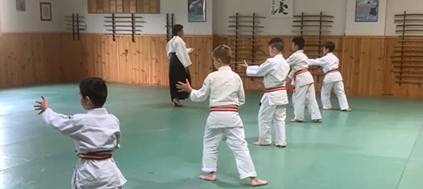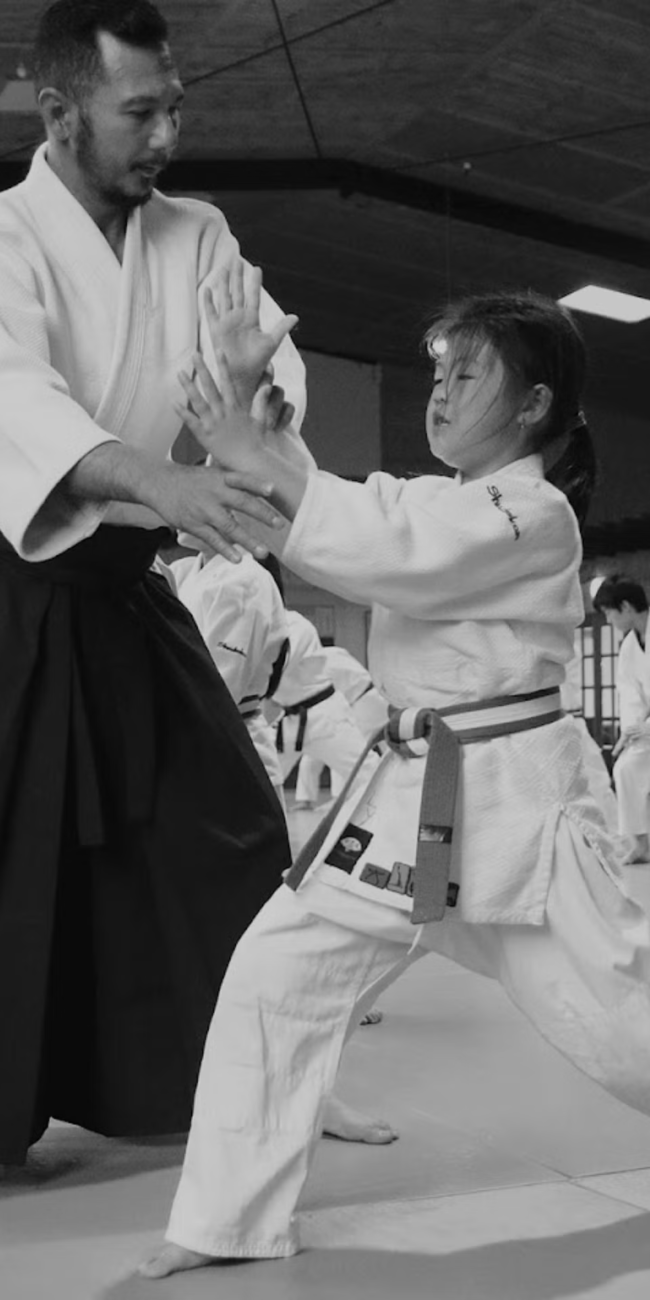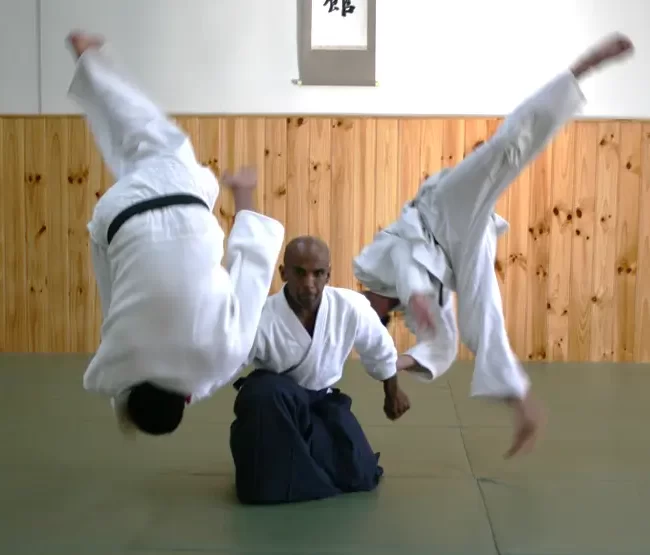
Adults engage in aikido for various reasons, including relaxation, self-defence, and stress reduction. However, these motivations may not resonate with or be within the awareness of children. This raises the crucial question: why introduce aikido to kids? What are the potential gains for them, and how can this martial art enrich their lives?
To begin with, aikido distinguishes itself as a “non-aggressive” martial art. Unlike disciplines that focus on self-defence through aggressive means, aikido discourages the mindset of punching or kicking to resolve conflicts. Instead of instigating a fight, aikido teaches children how to conclude conflicts peacefully, emphasizing that fighting should always be the last resort in dealing with confrontation.
Aikido places a significant emphasis on teaching kids to maintain balance, relaxation, and calmness. While it may be challenging, if not impossible, for children to remain calm at all times, aikido imparts the understanding that they have the power to make that choice. By introducing the fundamentals of “going within,” aikido equips children with tools to stay composed, especially when faced with challenging situations.
The ability to stay calm proves highly advantageous, particularly when concentration on schoolwork, focus during sports activities, or maintaining composure in class is necessary. Importantly, aikido clarifies that remaining calm, relaxed, and balanced does not mean suppressing emotions. On the contrary, it teaches effective communication, aiding in conflict avoidance, and demonstrates that calmness is not only the better option but also a positive and satisfying experience.
Aikido promotes a form of “practical” self-defence that differs from striking arts like Taekwondo and karate. While these arts focus on health and well-being, they primarily equip children with a singular tool when dealing with conflict—aggression. Aikido, on the other hand, provides a broader set of skills that extend beyond physical confrontation.
Children who rely solely on kicking and punching to settle conflicts may face significant challenges when confronted with life’s more pervasive “attacks,” such as bullying, stress, disappointment, and verbal abuse. Aikido, with its emphasis on non-aggression and peaceful resolution, prepares children to navigate these challenges effectively.
In conclusion, aikido offers children a unique set of skills and principles that go beyond conventional martial arts. It equips them with the ability to resolve conflicts peacefully, encourages a calm and balanced mindset, and promotes effective communication. By instilling these values early on, aikido not only provides children with practical self-defence but also empowers them to face life’s challenges with resilience and a positive approach.
Aikido instills a positive worldview in children, imparting the belief that they can create something worthwhile and take pride in their accomplishments. The discipline emphasizes the importance of setting goals and having a clear vision of desired outcomes. More significantly, aikido teaches children the necessity of pairing their vision with action to bring their aspirations to fruition.
Beyond this, aikido conveys the powerful idea that it is possible to derive goodness from whatever challenges life presents. Aikido training instills in children a sense of responsibility to actively seek positive outcomes in every situation they encounter. The discipline teaches kids to appreciate and savor every life experience, recognizing that, despite outward appearances, they face challenges such as peer pressure, academic demands, and high standards.
In the realm of education, aikido contributes to enhanced academic performance by fostering a clear, calm, and balanced mindset. This mental clarity enables children to focus more effectively and absorb knowledge with greater ease. Aikido also promotes the development of each child’s full human potential, offering them the tools to absorb essential knowledge and skills during their formative school years, fostering overall personal growth.
Aikido extends its benefits to sports, helping children excel by developing essential elements like strength, skills, focus, stamina, centering, proper breathing, and visualization of desired outcomes. While many youth athletic programs stress teamwork and fun, aikido stands out by addressing fundamental aspects often overlooked by amateur coaches, providing a well-rounded approach to sports development.
Remarkably, aikido is inclusive and accessible to everyone, irrespective of athletic talent or skill. The discipline’s straightforward principles, encompassing relaxation, effortless movement, helping others, and cultivating a calm, open, and positive mind, make it suitable for individuals of all shapes and sizes. Aikido’s reliance on basic universal principles and its emphasis on non-contention of force mean that anyone can engage in its practice, fostering a sense of unity and understanding.
In summary, aikido widens the minds and understanding of children, offering them valuable skills and insights applicable in diverse life scenarios. Beyond physical techniques, aikido shapes children’s character, promotes personal growth, enhances academic performance, and contributes to success in sports, all while fostering a mindset of inclusivity and the appreciation of universal principles.





